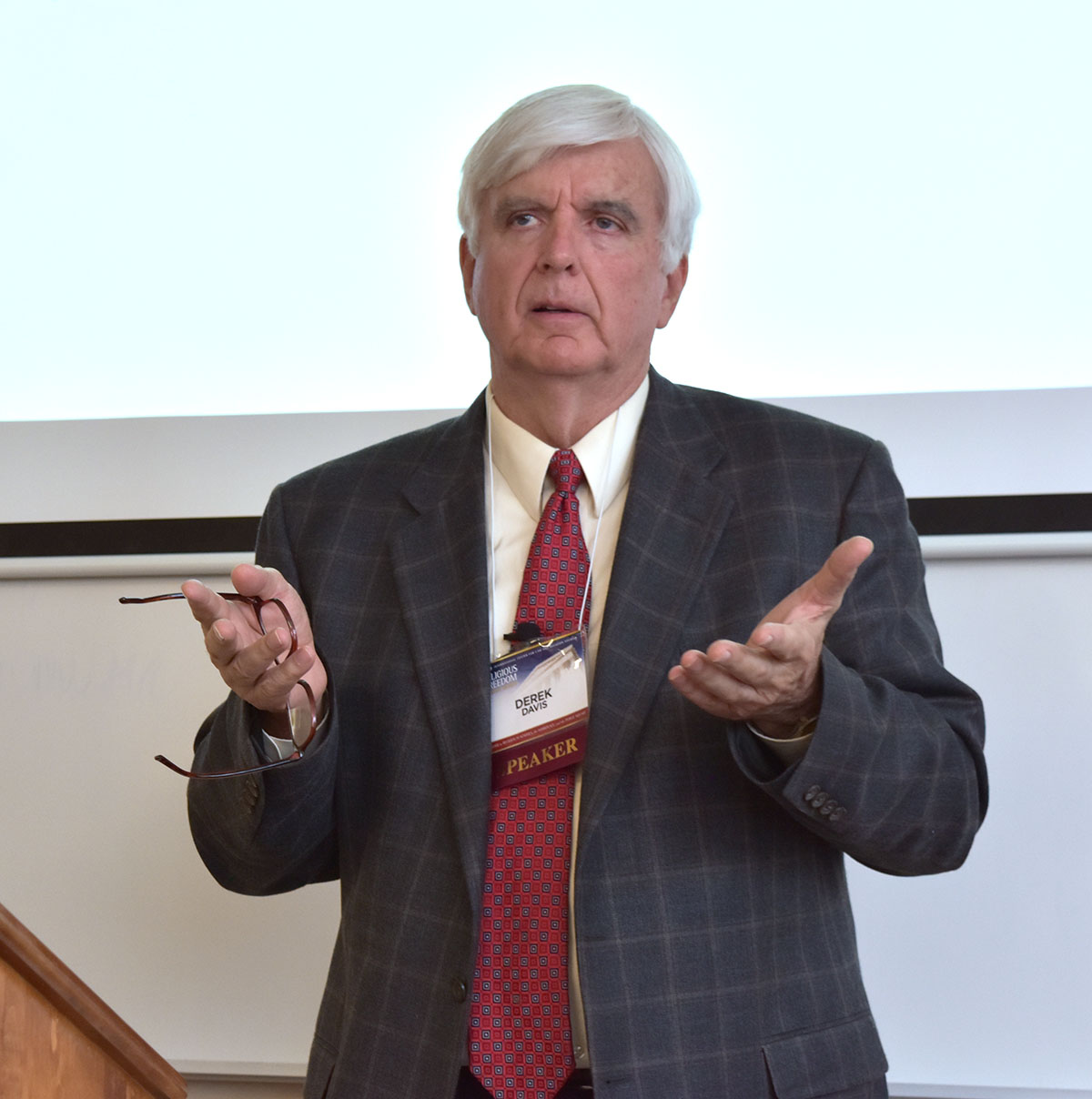Workshop: Religion and the Workplace: What Employers Should Know – Derek Davis

by Kyle Harvey, 2017 ICLRS Student Fellow
Dr. Derek Davis, former director of the J.M. Dawson Institute on Church-State Studies at Baylor University, presented on the legal framework behind religion and the workplace. Dr. Davis began his presentation addressing the relevant law that governs workplace interactions, Title VII of the 1964 Civil Rights Act. The key language that Dr. Davis drew upon was that employers must “reasonably accommodate” religious practices of their employees, so long as the accommodation does not create an “undue hardship” on the employer.
Dr. Davis then delved deeper into what might constitute “religious accommodation.” Dr. Davis explained that a particular day of worship, certain clothing practices, etc., could be the types of accommodations that an employee might seek. To help illustrate his point, Dr. Davis addressed some of the relevant case law in U.S. history, stressing that employers should avoid scheduling trainings and/or work tests on religious days of rests. Furthermore, Dr. Davis emphasized that employers should avoid questioning and asking about the religion of their employees; the reason, to not create issues of discrimination based on religion. To finalize this portion of his presentation, Dr. Davis explained that the exception to accommodation is when an undue hardship is placed upon the employer. However, what constitutes an undue hardship depends upon the level of “havoc” or disruption that the religious exception truly causes to the employer, with no set formula.
In conclusion, Dr. Davis explained that religious harassment can be a pertinent issue in workplace interactions. Such harassment can take the form of quid pro quo harassment or “teasing and joking.” Depending upon the frequency and severity of the harassment, the liability and damages that a harassing employer faces can be severe.